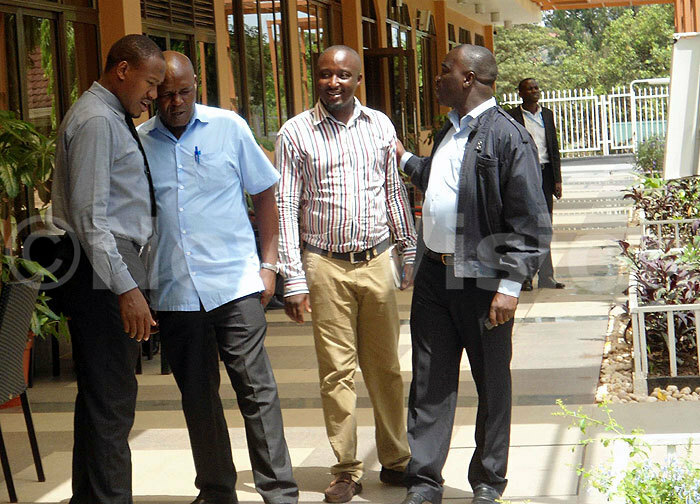NAADS ED tips plant nursery operators on better quality standards
NAADS, a major buyer of the seedlings from the nursery operators, is responsible for distributing them to farmers.
Plant nursery operators have been advised to produce better quality seedlings in order to retain their contracts with the Government. The National Agricultural Advisory Services (NAADS) executive director made the recommendation at a time when several farmers have complained that some of the seedlings they receive from the Government do not germinate.
The NAADS executive director, Dr Sam Mugasi, while meeting the nursery operators also warned that NAADS will disqualify those who supply fake seedlings to government agencies.
The NAADS programme, which is the major buyer of the seedlings from the nursery operators, is responsible for distributing them to farmers. The body alos provides advisory services and works hand-in-hand with the Operation Wealth Creation programme.
However, according to Dr Mugasi, the sourcing of quality standard seedlings is one of the major challenges that the Government faces and this needs to be addressed urgently.
He applauded the operators for forming an association saying it will help in the capacity building and information dissemination on top of addressing issues of quality assurance.
"We believe that with a common voice, standards will be ensured and by-laws will be put in place to guide the operations of the nurseries," he said.
He added: "We see this association as partners and we shall help them build capacity, but above all they will help us in quality assurance."
Mugasi explained that since they will have their own verification and peer assessment because they know each other very well, everybody will be accountable to the association such that who supply substandard materials will be blacklisted from supplying to government.

Rogers Mugisha (left), the chairperson of the association, chats with an association member. (Credit: Agnes Nantambi)

Dr Mugasi also warned the operators against middlemen saying their intention is to make money while ignoring the repercussions.
"We prefer dealing with nursery operators because we can trace backward and know where the seedlings were got from, but if we deal with middlemen we cannot know where the seeds are coming from even when a problem rises," he said.
He advised the operators be part of the value chain and also asked those especially in fruits to embrace improved varieties saying not all fruit have market locally and on the international market.
Rogers Mugisha, the chairperson of the association, said the formation of the association was occasioned by a number of challenges in the chain of supply chain.
He said the association is currently looking at over nine crops ranging from mangoes, ginger, citrus, grapes, passion fruits, and cocoa, apples, tea and cassava cuttings, among others.
"We decided to form an association because of the emerging issues of quality and quantity, having the desired materials and the varieties that NAADS, government and other markets demand on top of lobbying for more funding to sector."
Mugisa highlighted that supervision of their work is still a big challenge in addition to farmers before being ill-prepared before supply which leads to dumping of seedlings.
"When are delivering these materials, you find that no needs assessment is done to ensure supply on demand, "he said.
He complained that middlemen are a great problem to the operators and have been blocking the calls of order from government, but said the association will help to address them as government will deal directly with the nursery operators.
Henry Lwanga, who runs cocoa nurseries, appealed to leaders to sensitise people on the importance of cocoa growing saying it fetches high returns, yet customers for the seedlings are few due to lack of sensitisation.
Albert Mwebesa, who owns tea nurseries, advised fellow operators to embrace colonal combination of tea saying its market is readily available.
John Mulungi, another tea nursery operator, called on government to set up more tea factories as a means of keeping them in business.
Sam Opio, an operator in cassava cuttings in Apac district asked NAADS extension workers to sensitise the farmers before giving them the seedlings.